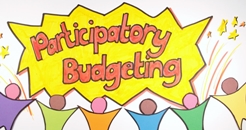 Participatory Budgeting - 2
Participatory Budgeting - 2
Following on from my blog introducing Participatory Budgeting, what has been the impact of such initiatives?
Firstly, participatory budgeting leads to significant shifts in government spending toward priorities that directly benefit the poor. See a World Bank report which highlighted links to improvements in poverty rates and water services. Other studies examining the effect of participatory budgeting in Brazil found increased investments in sanitation and health services, ultimately leading to a significant reduction in infant mortality rates. Put another way, research has shown that participatory budgeting tends to lead to policies that voters—especially poorer voters—prefer.
Secondly, evidence suggests that, when participatory budgeting is in place, elected incumbents become more likely to be re-elected, and government revenues increase as citizens become less likely to engage in tax delinquency. Tapping into the wisdom of the crowd, in short, pays off for both citizens and governments.
Thirdly, people receive civic education and engage with their community. Participatory budgeting forces dialogue and deliberation. Conversations with different members of the community enable people to engage firsthand with their neighbours and public officials across the political spectrum and weigh tradeoffs, learn how much things cost and the complexity of some projects.
Is it happening in the UK?
In 2016, the Scottish Government created a £2 million Community Choices Fund to create participatory budgeting opportunities for authorities and community groups, including churches, with a particular focus on deprived areas.
The Church of Scotland received grants from the Fund for four congregations to learn about participatory budgeting and host an event where community members decided which local projects should be funded. Each community had £5,000 to distribute and a total of 28 community projects were funded.
In August 2017, The Church of Scotland's Church and Society Council hosted an event on Participatory Budgeting at Gorbals Parish Church in Glasgow for churches interested in taking part in participatory budgeting. People came from across Scotland to hear how they can support their local communities to make funding decisions. At the event, delegates had sessions with representatives from the four churches above who had already hosted successful Participatory Budgeting processes giving out £20,000 to their communities, along with practical sessions about how Participatory Budgeting works.
Those delegates are now trying to find opportunities to use Participatory Budgeting locally.
The Council also produced a 3 minute video on Participatory Budgeting as part of its Speak Out initiative - Doing Politics Differently:
Something to discuss with your local authority and other agencies in your area?
Retweet about this article:
Geoff Knott, 26/09/2017